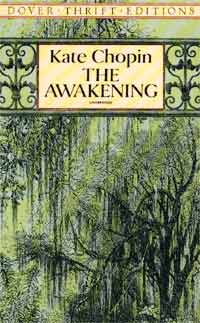Больше рецензий
6 февраля 2016 г. 18:40
652
4
РецензияIt is hard to believe this book was written and published 1899! The main character is trapped in her daily routine, living a life of a housewife, playing a role of a "perfect housewife". And slowly, little by little she is starting to change...she is becoming her real self. Strange, even "sick" to her husband, she stops caring about what she is supposed to be doing. She is becoming an artist, becoming a strong person, develops a personality and inner strength; strength to do things which women "should not do".
I can imagine some criticizing the book and the character for abandoning her children, for being selfish and egoistic. But why should one sacrifice their life, their dreams, their personality for ...for exactly what? For making sure that the cook is preparing enough meals and the wine matches the dishes? And the napkins go well with the furniture? For making your despotic and tyrannical husband happy and satisfied? So, he would treat you as a fine piece of furniture, and once you disagree with him you would become "sick", "weird" and "inappropriate". Like he would criticize the chef for not making perfect enough meals, he would criticize you for not being what he imagines "a good mother" and "a good wife". The problem here is that people are not exquisite wine bottles or pieces of furniture, there are not high quality dinners. Human beings have flaws, we are not flat, we are static, we are changing. Metamorphose. We are always transforming.
In the book Edna becomes somebody, not somebody's wife. And finding yourself is not about having an affair, is is about freedom. Not even that feminist - like freedom from the society pressure, because not only women but also men have to "fit", follow the norms. Standards. Like Robert, who is a man, free to do what he wants is too scared, afraid to do something. He leaves the country...
It is a beautiful book, filled with the sea descriptions which are inseparable from the very idea of freedom. I would put this book in one row with such novels like "The French Lieutenant's Woman", "To the Lighthouse" and "The Hours". All of them are my favorite, and in all these books the sea or the water is present as an important part of a narrative. And the women are strong characters, with unconventional thoughts and behavior. And at the same time these novels describe the daily routines, the struggle between "what if i buried all my talents" and "wishing nothing but making a perfect cake". The cake of the very ritual of cooking is often used as a symbol of the desperate clinging to the normal reality, trying to maintain that outside vision of normality, of conformity. Like in the "Rabbit Hole" movie, based on a Pulitzer Prize-winning play by David Lindsay-Abaire. Or in the 'Revolutionary Road" April preparing breakfast, washing the dishes and then ..."she did it to herself". As someone said, "only women would probably understand why she washed the floors and then shot herself in the head".

